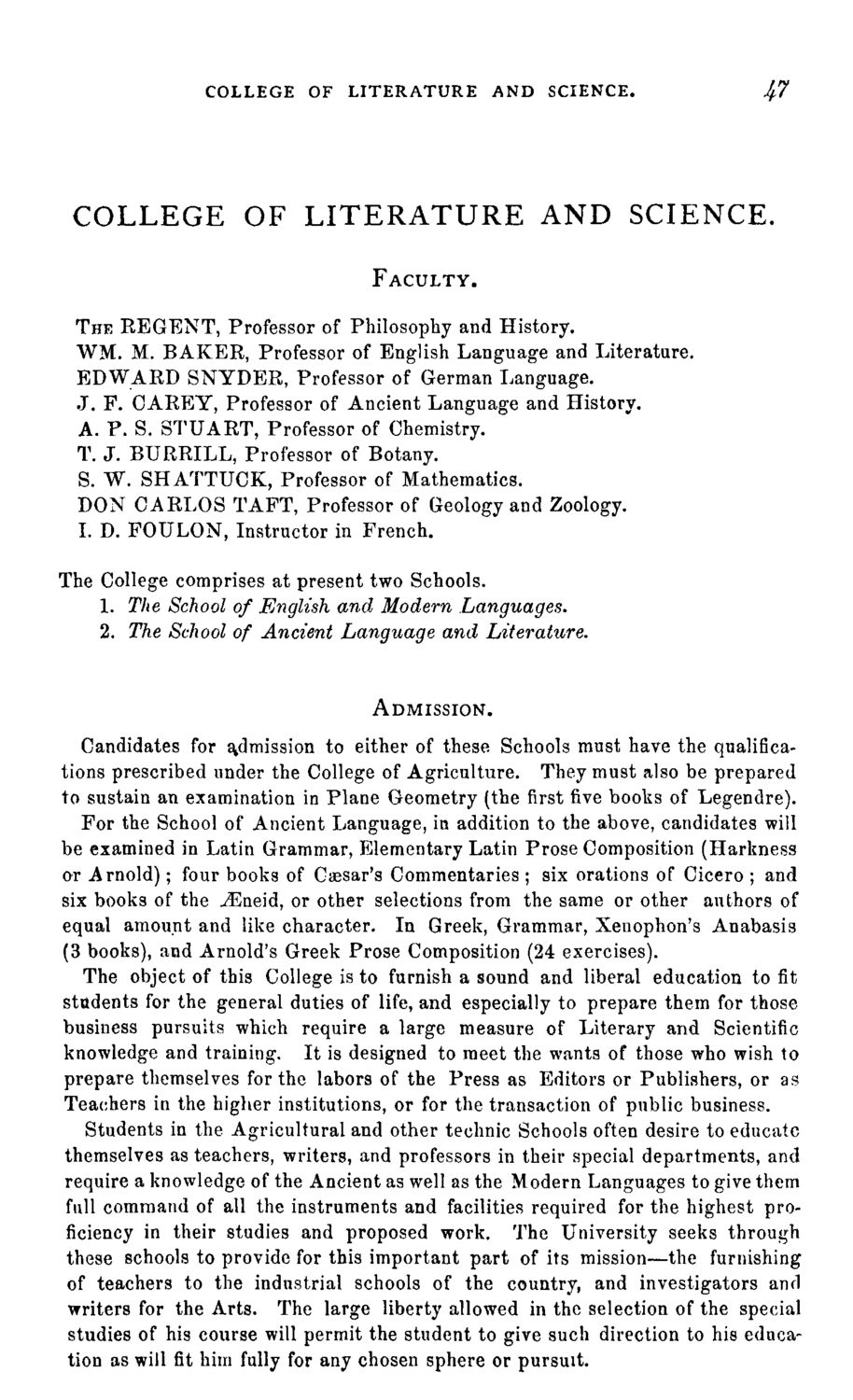| |
| |
Caption: Course Catalog - 1871-1872
This is a reduced-resolution page image for fast online browsing.

EXTRACTED TEXT FROM PAGE:
COLLEGE OF LITERATURE AND SCIENCE. Jf.7 COLLEGE OF LITERATURE AND SCIENCE. FACULTY. THE REGENT, Professor of Philosophy and History. WM. M. BAKER, Professor of English Language and Literature. EDWARD SNYDER, Professor of German Language. J. F. CAREY, Professor of Ancient Language and History. A. P. S. STUART, Professor of Chemistry. T. J. BURRILL, Professor of Botany. S. W. SHATTUCK, Professor of Mathematics. DON CARLOS TAPT, Professor of Geology and Zoology. I. D. POULON, Instructor in French. The College comprises at present two Schools. 1. The School of English and Modern Languages. 2. The School of Ancient Language and Literature. ADMISSION. Candidates for admission to either of these Schools must have the qualifications prescribed under the College of Agriculture. They must also be prepared to sustain an examination in Plane Geometry (the first five books of Legendre). For the School of Ancient Language, in addition to the above, candidates will be examined in Latin Grammar, Elementary Latin Prose Composition (Harkness or Arnold); four books of Caesar's Commentaries ; six orations of Cicero ; and six books of the ^Eneid, or other selections from the same or other authors of equal amount and like character. In Greek, Grammar, Xenophon's Anabasis (3 books), and Arnold's Greek Prose Composition (24 exercises). The object of this College is to furnish a sound and liberal education to fit students for the general duties of life, and especially to prepare them for those business pursuits which require a large measure of Literary and Scientific knowledge and training. It is designed to meet the wants of those who wish to prepare themselves for the labors of the Press as Editors or Publishers, or as Teachers in the higher institutions, or for the transaction of public business. Students in the Agricultural and other technic Schools often desire to educate themselves as teachers, writers, and professors in their special departments, and require a knowledge of the Ancient as well as the Modern Languages to give them full command of all the instruments and facilities required for the highest proficiency in their studies and proposed work. The University seeks through these schools to provide for this important part of its mission—the furnishing of teachers to the industrial schools of the country, and investigators and writers for the Arts. The large liberty allowed in the selection of the special studies of his course will permit the student to give such direction to his education as will fit him fully for any chosen sphere or pursuit.
| |